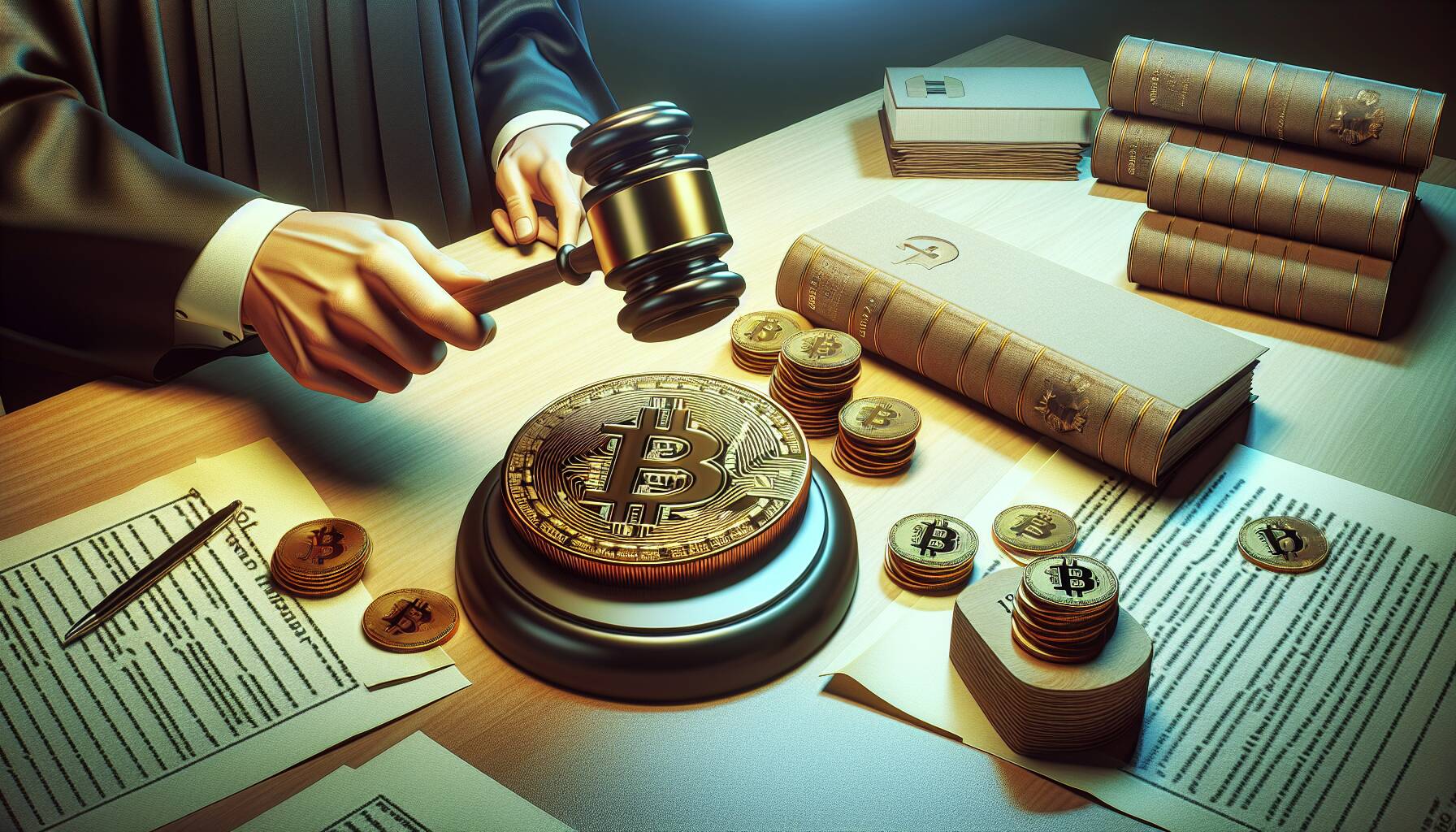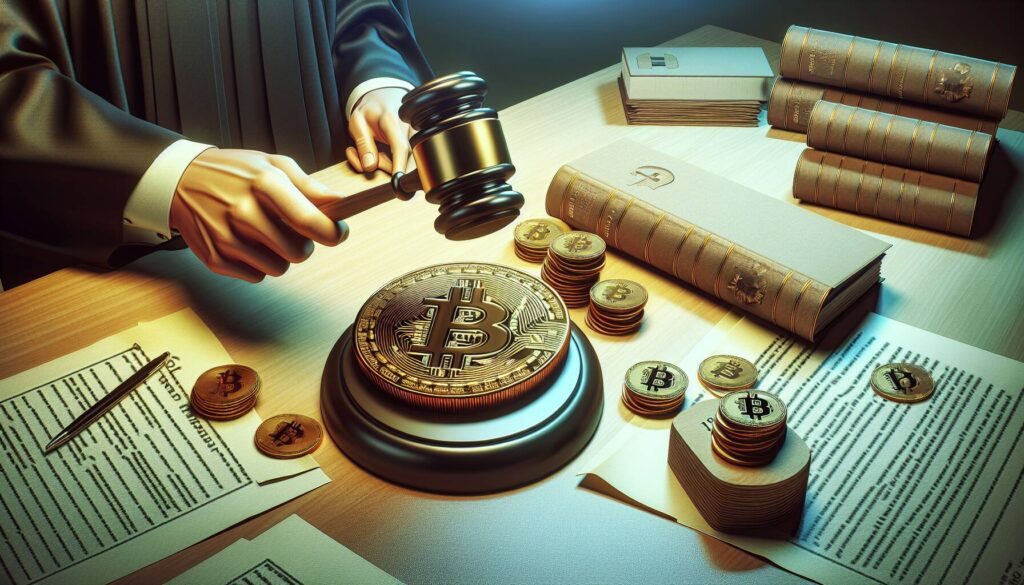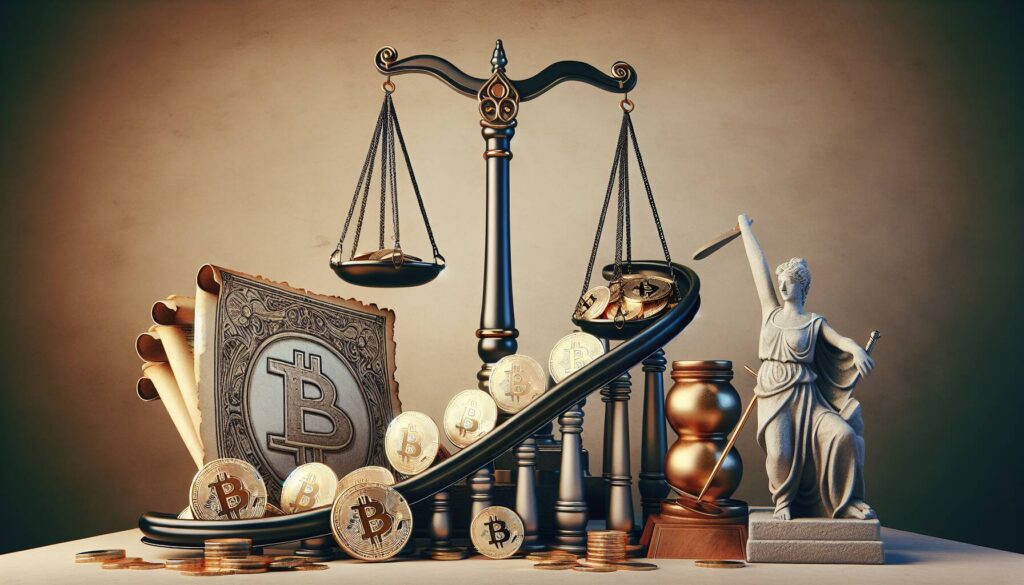A significant development has emerged in the world of cryptocurrency, as a U.S. judge has overturned the fraud and market manipulation convictions of Avraham Eisenberg, a crypto trader linked to the notorious Mango Markets case. The ruling, issued by U.S. District Judge Arun Subramanian, declared that prosecutors did not successfully demonstrate that Eisenberg had made any false representations about the platform.
Eisenberg, who was accused of orchestrating a scheme that drained $110 million from Mango Markets, manipulated the price of the platform’s native token, MNGO, through remarkably large trades that inflated its value by over 1,000% within a mere 20 minutes. This surge allowed him to borrow and extract vast amounts of cryptocurrency, supported by the artificially increased collateral. However, Eisenberg’s defense contended that Mango Markets operated through open smart contracts, enabling users to transact freely, and that he was merely exploiting a flaw in the system rather than committing fraud.
Judge Subramanian sided with the defense, emphasizing that the permissionless nature of the platform resulted in “insufficient evidence of falsity,” meaning that the prosecution’s arguments fell short. Eisenberg’s attorney, Brian Klein, expressed satisfaction with the verdict, stating, “From the beginning, we said this case was fatally flawed. We are very pleased for Avi that the judge granted our motion and dismissed the case.”
“There was insufficient evidence of falsity regarding Eisenberg’s representation to Mango Markets,” noted Judge Subramanian.
It’s worth noting that despite the dismissal of these charges, Eisenberg remains incarcerated, currently serving a four-year sentence related to a separate conviction for possessing child sexual abuse material. This complex and ongoing saga highlights the intricate and often contentious intersections of law and the rapidly evolving cryptocurrency landscape.

Overturning of Convictions in Crypto Fraud Case
The recent ruling by U.S. District Judge Arun Subramanian has significant implications for the crypto industry and its regulatory landscape. Here are the key points from the case:
- Convictions Overturned: Avraham Eisenberg’s fraud and market manipulation convictions have been overturned.
- Insufficient Evidence: The judge ruled that prosecutors failed to prove Eisenberg made false representations to Mango Markets.
- Acquittal on Wire Fraud Charges: Eisenberg was acquitted of wire fraud charges, citing a lack of evidence.
- Price Manipulation: Eisenberg manipulated the price of Mango’s native token MNGO, increasing its value by over 1,000% in a short period.
- Vulnerability Exploitation: His defense argued that he exploited a vulnerability within Mango’s smart contract operations, which permitted free transactions.
- Judge’s Agreement: The judge supported Eisenberg’s defense, noting the permissionless structure of Mango Markets limited the grounds for prosecution.
- Ongoing Legal Issues: Despite the overturned convictions, Eisenberg is currently serving a separate four-year sentence for possession of child sexual abuse material.
- Legal Representation: Eisenberg’s attorney described the original case as “fatally flawed” and expressed satisfaction with the judge’s decision.
This case highlights the complexities and challenges of regulating decentralized finance and the legal interpretations surrounding smart contracts in the cryptocurrency space.
These developments may impact readers and participants in the cryptocurrency market by:
- Influencing Regulatory Frameworks: Overturning convictions could prompt further discussions on how crypto transactions are regulated.
- Revised Legal Perspectives: The decision may set a precedent for how vulnerabilities in decentralized platforms are viewed legally.
- Risk Awareness: Investors might need to reassess risks associated with trading on decentralized platforms after seeing vulnerabilities exploited.
- Legal Precedents: Outcomes like this can influence future cases regarding crypto crimes, potentially affecting investor confidence.
Impact of U.S. Judge Overturning Conviction of Crypto Trader Avraham Eisenberg
The recent ruling by U.S. District Judge Arun Subramanian to overturn Avraham Eisenberg’s fraud and market manipulation convictions has sent ripples through the cryptocurrency world. With a staggering $110 million at stake, the legal ordeal of Eisenberg exemplifies the ongoing tension between innovation in decentralized finance (DeFi) and traditional regulatory frameworks. The unique dynamics of this case highlight both competitive advantages and challenges that similar entities in the crypto space may face moving forward.
Competitive Advantages: The judge’s decision underscores a significant win for the crypto community, particularly for advocates of decentralized systems. Eisenberg’s defense argued that the nature of Mango Markets—a permissionless protocol—implied that users could engage freely within its framework. This ruling sets a precedent that may empower other traders who exploit system vulnerabilities, suggesting that a clear distinction exists between manipulation and legitimate trading strategies. Moreover, it reinforces the ethos of decentralization where responsibility lies within the system’s design rather than with individuals exploiting it. For platforms similar to Mango Markets, this outcome could engender confidence, potentially attracting more users who appreciate the minimized risks of criminal liability.
Disadvantages and Challenges: However, the acquittal also raises concerns regarding the regulatory clarity in the crypto arena. If traders like Eisenberg can claim legitimate utilization of loopholes without facing penalties, it may embolden unethical behavior among less scrupulous individuals. Traditional financial institutions and regulators might find this precedent problematic, as it complicates efforts to impose conventional market rules within a decentralized system. The ambiguity could lead to more stringent regulations aimed at curtailing perceived outlaws and may dissuade risk-averse investors wary of unpredictability in their dealings.
As for who could benefit from this ruling, it predominantly favors those involved in the crypto trading sphere, particularly individuals who favor decentralized trading architectures. Conversely, it poses obligations on regulators and existing crypto platforms to reassess their frameworks to mitigate risks associated with market manipulation. These developments could either foster innovation or stifle it through heightened scrutiny, placing traditional financial entities at a disadvantage as they navigate this evolving landscape.
















